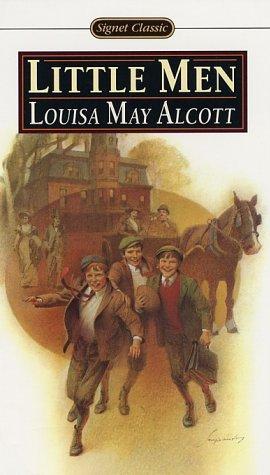Little Men Book Summary
TL;DR
"Little Men" follows Jo Bhaer and her husband as they run a school for boys at Plumfield, navigating the challenges and adventures of family and education while embodying transcendentalist principles.
What is Little Men about
"Little Men" is a sequel to Louisa May Alcott's celebrated "Little Women," focusing on Jo March, now Jo Bhaer. The narrative centers around her life at Plumfield, a school she runs with her husband, where they care for twelve orphan boys while raising their two sons. Through various tales of mischief and learning, the book showcases the joys and tribulations of parenting and education. Alcott's teaching methods reflect her father, Bronson Alcott's, transcendentalist ideals. The story not only entertains but also imparts valuable lessons on honesty, responsibility, and independence as the boys navigate their formative years.
Top Little Men Quotes
- "It is never too late to learn; the heart always remains a schoolhouse."
- "Boys will be boys, but with guidance, they can become men of integrity."
Who should read Little Men?
"Little Men" appeals to readers of all ages who enjoy heartwarming tales of family, education, and personal growth, particularly those familiar with Alcott's previous works. It offers valuable insights into the challenges of raising boys and the importance of nurturing their development in a loving environment.
Little Men Best Reviews
- "A delightful sequel that captures the essence of childhood and the joys of teaching." - Literary Digest
- "Alcott provides a rich tapestry of life lessons woven through the adventures of boys growing up." - The New York Times Book Review
People also liked these summaries
Little Men FAQs
What age group is suitable for reading "Little Men"?
While "Little Women" focuses on the lives of the March sisters, "Little Men" shifts the focus to Jo Bhaer and her experiences running a school for boys, presenting different challenges and themes in upbringing.
